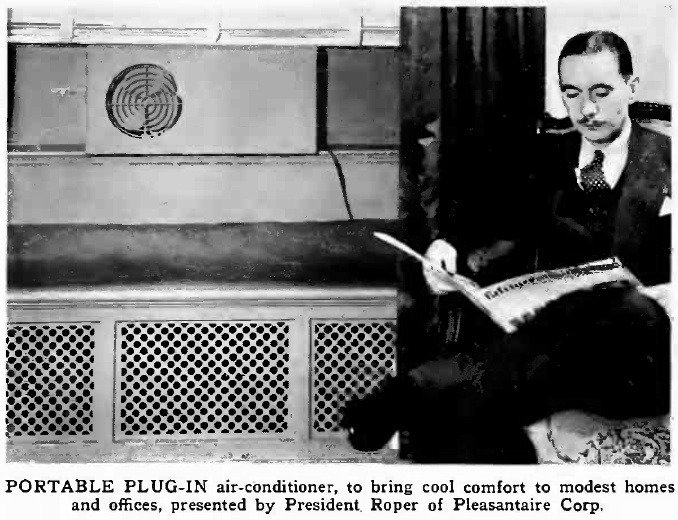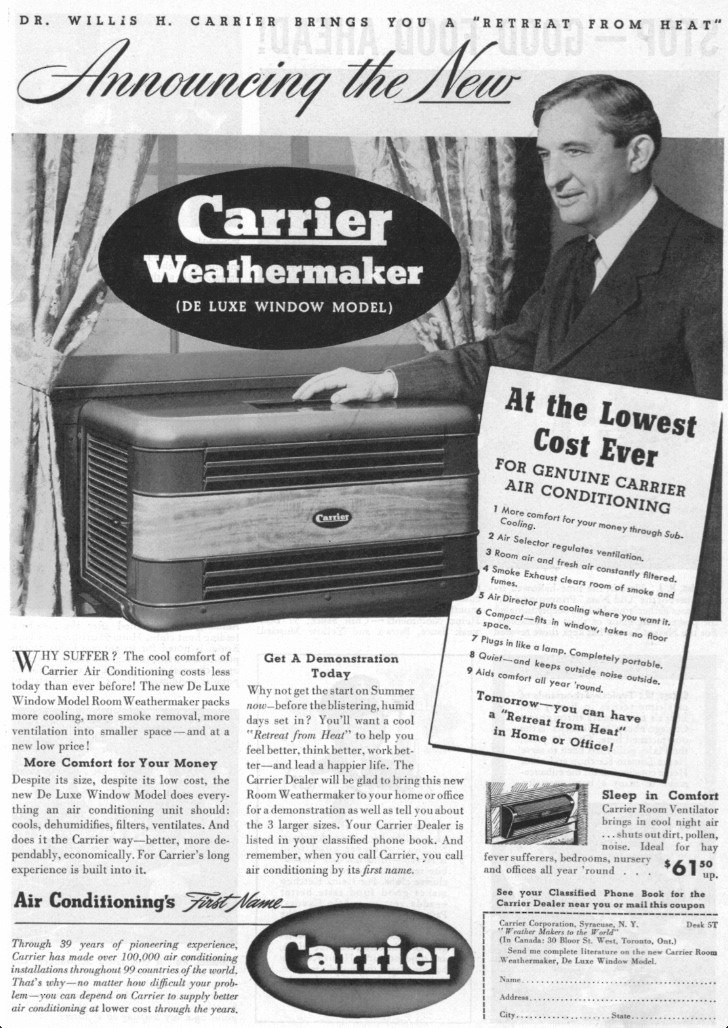The Design Evolution of the Air Conditioner, Part 2

As we saw in Part 1, the earliest domestic air conditioners (like the one above) were upright-piano-sized console units putting out up to 24,000 BTUs. But in the mid-1930s, some companies figured that smaller, more manageable air conditioners in the 3,500-7,000 BTU range--good enough to cool a single room or office--might be more desirable to consumers.
Thus in 1936, the Pleasantaire Corporation released this sleek, diminutive, 4,000-BTU window-mounted model called the Northwind:


(I love points #5, 6 and 7 in the advertisement directly above. Point #5 probably meant it drowned out noise, while points #6 and 7 are probably good ol' B.S.)
This sleeker design was apparently not very effective or didn't sell well--it was retired after just two years on the market. In 1938 Pleasantaire began producing a very different-looking machine. This design was slightly more powerful at 6,000 BTUs, and resembled a radio, aesthetically speaking:

By 1939 the preferred form factor evolved drastically, with consoles on the outs; this was something like going from mainframe computers to personal PCs, and window-based units became all the rage.
Below is the 1939 "Cool Wave" air conditioner. Interestingly, it was released as a joint effort between the York Ice Machinery Company and radio manufacturer Philco, and I believe you can see some radio DNA in this design as well as Pleasantaire's:



By 1940, Carrier jumped into the window-unit game. Their Weathermaker De Luxe had a bolder, more contemporary design than the Cool-Wave, splitting the louvers between the front and sides of the unit, and adding a contrasting visual element to the front:


Philco-York responded in 1941 with this "sensational, new" waterfall-front design:


Alas, by the end of 1941 America had been pulled into the Second World War. Air conditioner development would be largely halted for the next four years.

